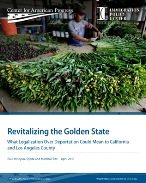Updated 09/09/11 -Frustrated by the lack of comprehensive immigration reform, many advocates, from grassroots community organizers to Members of Congress, have begun calling on President Obama to take action. They want the President and his administration to use the power of the executive branch to defer removals, revisit current policies and priorities, and interpret the law as compassionately as possible. The specific requests vary greatly. Senators Richard Durbin (D-IL) and Richard Lugar (R-IN), for instance, last year asked the Department of Homeland Security (DHS) to defer the removal of young people who qualified for legal permanent residence until such time as their legislation, the DREAM Act, became law. In April 2011, nineteen Democratic and Independent U.S. Senators, including Senators Harry Reid (D-NV), Richard Durbin (D-IL), and Kristin Gillibrand (D-NY), reiterated the call to stop the removal of all students who meet the strict requirements of the DREAM Act. While the DREAM Act is frequently invoked, many community groups have also called for exercising prosecutorial discretion in individual cases by declining to put people in removal proceedings, terminating proceedings, or delaying removals in cases where people have longstanding ties to the community, U.S.-citizen family members, or other characteristics that merit a favorable exercise of discretion. Read more...
Published On: Thu, May 26, 2011 | Download File




